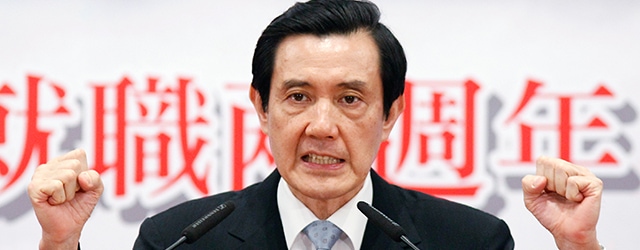Taiwan | Milestones

Taiwan’s president Ma Ying-jeou and his Kuomintang party lost control of important political positions in late November, when Taiwanese voters chose opposition party and independent candidates in local elections across the island. The KMT won only six of 16 mayoral and county magistrate positions, with the primary opposition party, the Democratic Progressive Party (DPP), winning 47.6% of the overall popular vote, compared with 40.7% for the KMT.
Although the recent elections were for local-level officials only, the results have national implications, says Richard Bush, senior fellow and director of the Center for East Asia Policy Studies at the Brookings Institution. “Local leaders create the atmosphere for islandwide politics,” he says. “The magistrates that were elected have a year to create a record for the DPP that it does know how to govern, at least at the local level. It is significant in terms of framing the national election.”
Domestic economic issues were central to the recent election and will likely remain so for the 2016 national campaigns. Taiwan’s GDP has grown by an average of only 3.3% since 2008, compared with growth rates over 5% for the five preceding years.
President Ma has promoted stronger economic ties with mainland China as a means to increase economic growth, and his administration has worked on multiple trade agreements with Beijing. Critics charge that those trade agreements have disproportionately benefited the island’s wealthier residents.
While the KMT has promoted stronger cross-straits ties, the DPP has pushed for greater political and economic distance from Beijing. The DPP’s strengthening power could complicate the relationship between the two governments. “The history of the DPP is to deny that there is or should be a relationship with Beijing in a political and legal sense,” says Bush. “The domestic politics are affecting the external flexibility on the DPP’s part.”



